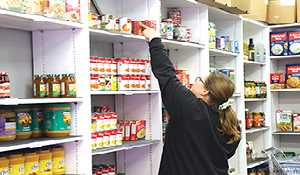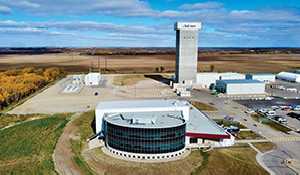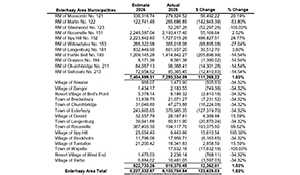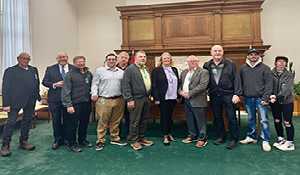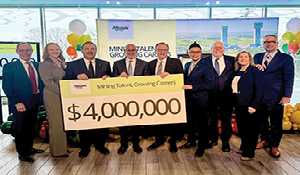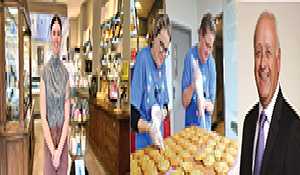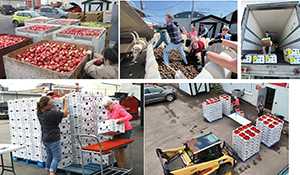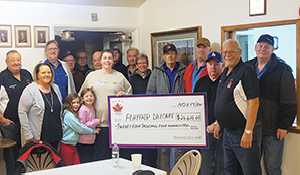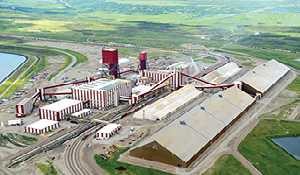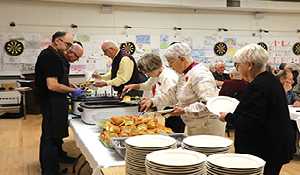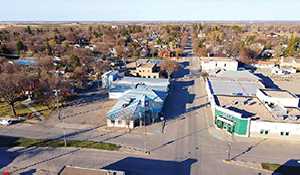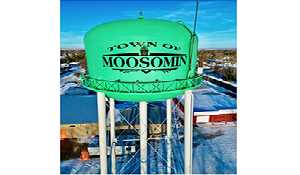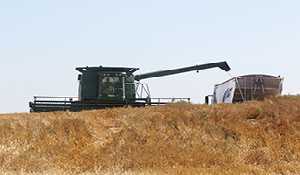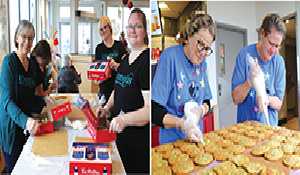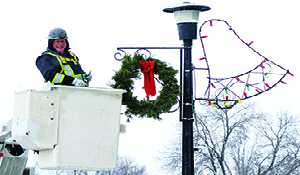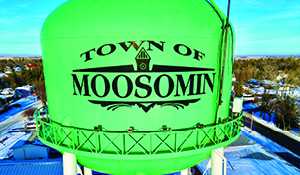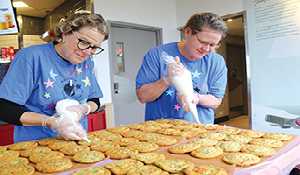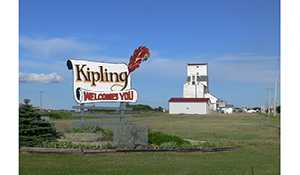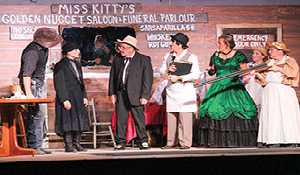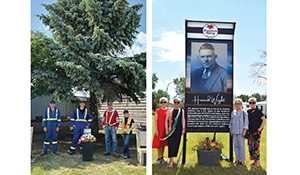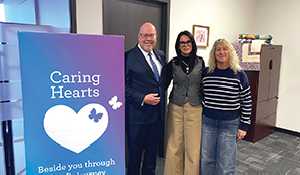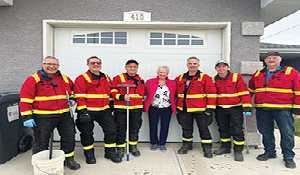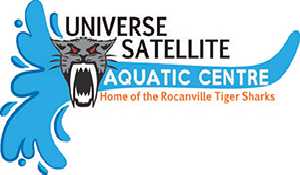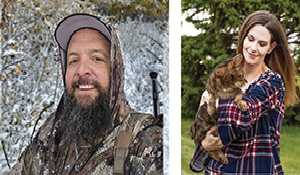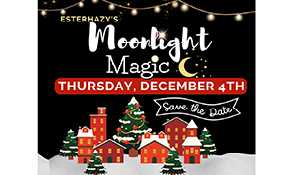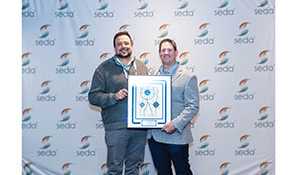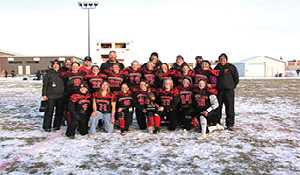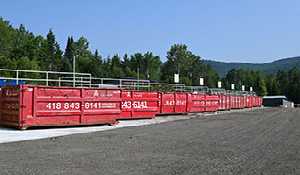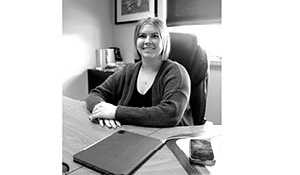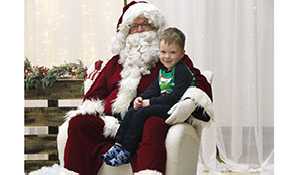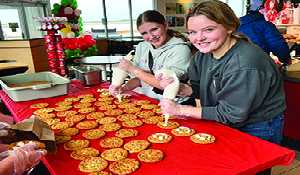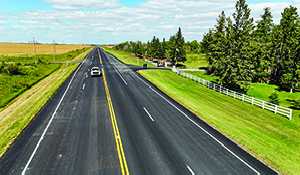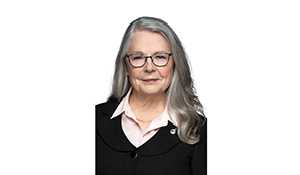Ralph Goodale talks about his roles as Canadian High Commissioner to the UK
From the Prairies to London:
July 21, 2025, 4:57 pm
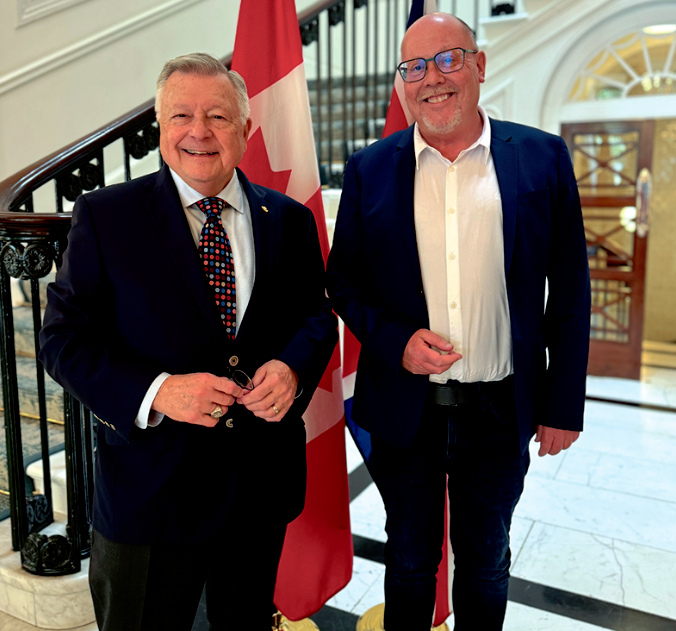

The World-Spectator recently sat down for an interview at Canada House in London with Ralph Goodale, the Canadian High Commissioner to the United Kingdom. Goodale is from Saskatchewan, and after a career in politics was appointed by the federal government to represent Canada in the UK. The interview follows.
How long have you been doing this?
Just passed four years, I came in the spring of 2021.
How do you see your role?
It is representing Canada on whatever foreign policy or defense policy or economic or trade issue may be outstanding at any particular moment in time, and the last four years that I have been here has been a particularly busy period.
Back in the spring of 2021 they were dealing with Covid and Brexit. Right after that there was the first G7 summit after Covid in Cornwall in the summer of ‘21 and then the evacuation from Afghanistan and then the Aukus deal with the nuclear submarines and then there was a climate change conference, the biggest one ever at that point, in Glasgow, COP26, and that was sort of my first six or seven months.
Then, when we got into 2022, Putin invaded Ukraine in February. Later on in the year there were all the changes with the royal family, Queen Elizabeth had her Platinum Jubilee in the spring, she passed away in the fall, the state funeral. In between, the British government went through Boris Johnson, Elizabeth Truss, and Rishi Sunak. Three Prime Ministers one after the other, and the official accession to the throne of King Charles.
Into 2023, in the early part of the year, the UK was commemorating the 25th Anniversary of the Belfast Good Friday Agreement which ended the Troubles in Northern Ireland as it was called. There were some Canadians directly involved in that—General de Chastelain was part of that, Mr. Justice Cory wrote a number of legal decisions that relate to that.
Canada was very much involved in that anniversary, and then right after that was the coronation, and you get into the fall of 2023 and of course it was the Hamas terrorist attack on October 7th. That started the war again in the Middle East.
In 2024, it was the year of elections. The Brits had an election in July, and then the Americans had their election in November and into 2025 we had our election. The government changed here and when that happens from one party to another you have to get reappointed with all the new incoming officials that you haven’t dealt with before, although you deal with the opposition, but it’s different now that they’re in government. All of that was taking place in 2024 and of course Mr. Trump had his enormous impact on Canada and on the world.
How much does that change international politics?
The change is huge, and the world is still adjusting to it, trying to figure out how you deal with this very different U.S. government compared to what was there before—even different from Trump one, Trump two is a different creature. So all those things have implications or raise issues that I commissioned in London, have to deal with it. Going all the way back to the beginning, Covid. How do you make sure that Canadians have the right to travel appropriately and get into the country, get out of the country and all of those kinds of issues. Brexit of course had a big trade impact for Canada. We had negotiated a new trade agreement in the wake of Brexit and there are issues in there that really do affect Saskatchewan directly, like beef and pork, for example, are two matters that we continue to work on a daily basis.
Coming out of Covid, the global interest in vaccines. Saskatchewan has VIDO, the Vaccine Infectious Disease Organization that is developing into one of the few locations in Canada that has the production capacity for the next pandemic. Making sure that we know people from the University of Saskatchewan were properly connected to their counterparts with Oxford and Cambridge and taking advantage of that partnership that they have developed. Those are just a few examples, out of all of those issues. There is some issue that’s raised for Canada and often for Saskatchewan. The job of the high commission is to make sure that all of those are properly dealt with and that the Canadian or Saskatchewan point of view is presented and promoted as strong as we possibly can in the UK. There is a good relationship with the UK government, both the three previous Conservative governments and now the Labor government. The relationship is so deep and strong and well grounded that it works very well, but there is a lot to it whether it’s trade or defence or national security or culture, sometimes it’s consular affairs. There’s a prominent Canadian in the UK now that was in a traffic accident yesterday and injured, in hospital and we’re making sure that they are properly taken care of. The consular services are really remarkable. It’s not a big team, about a dozen people in consular services, and whenever Canadians are traveling abroad, they get into trouble, and we try to make sure they are properly taken care of and that they get the services and the support that they need.
What’s the biggest issue that you’ve had to deal with?
It would probably the Ukraine issue. We have about 300 people in the High Commission, and close to 100 of them deal with immigration issues. Your employee from the Ukraine, her paperwork was probably handled right here. There is not a huge amount of British immigration to Canada. There was years ago, but not recently, but this immigration platform here deals with the big migration flows that come from all across Europe. When people were suddenly having to evacuate from Afghanistan, that was handled here, and when the war started in Ukraine we had 1.3 million applications of people seeking to get a visa and get access into Canada, so each one of those has to be processed individually, and probably about 900,000 were approved and of that about 300,000 actually moved. So only about a third who applied have actually moved which tells you there’s a lot of people that want an escape valve if they need it, but they prefer to stay, and lots of cases where the family moved, but the breadwinner is often older because Ukraine is trying to avoid teenage or young conscription, most of the people who are called up are actually older. When you get 1.3 million applications coming through the door, it kind of upsets your routine, you have to make all the necessary adjustments, but that’s what we’re here for.
What’s the most rewarding part of your job and what is the most challenging part?
The rewarding part is hearing from the British on a very regular basis as we do and hearing from other diplomats from other countries around the world and what they think of Canada, and it is invariably a very positive assessment. In this last six or eight months that we have been dealing with Mr. Trump, the diplomatic community here has really gone out of their way to find ways to express their support and their encouragement for Canada as the British government and the British opposition. I was at an event last night in the House of Lords and they asked me to come talk about this situation which I did, and it was universal backing for Canada, and shared frustration with what we are dealing with, but whether it’s that issue or the humanitarian work that Canada does around the world or our cultural diplomacy, I see the incredible support Canada has from around the world.
We’ve had so many performers, entertainers coming through, and every time they get on the stage it’s a great advertisement for Canada. From Jeffrey Straker from Regina to the Four Tenors from Toronto, they’ve all been through here. That is the most satisfying thing to see how the world reacts to the image of Canada in the world and it’s very positive.
The most poignant moments would be in this last three years, the reaction of people from Ukraine, partly because of the Ukrainian diaspora in Canada. We’ve got 1.4 million people who would trace their family heritage to Ukraine. Apart from Russia itself that’s the biggest Ukrainian diaspora anywhere in the world and there’s a real personal feeling even when people have never visited the other country or don’t know anyone personally, just the fact that Canada is, outside of Europe, the most Ukrainian country in the world, and we have provided something like $21 billion in support through this difficult period and the gratitude is very moving, especially when you realize those people are on the frontline or their relatives are on the frontline defending democracy for the whole world. That’s very moving.
The most frustrating would be, in the British way of doing things, it is the remnants of colonialism that somehow they just can’t get over, it’s a little bit annoying, but you take it all in a very good natured way, but sometimes you do have to point out that we’re not a colony.
How do your roots from Saskatchewan inform who you are and how you fulfill your role?
First of all there are a number of issues that relate very directly to Saskatchewan. I mentioned VIDO as one. The grain business, the cattle and pork business, that’s another. Another is Evraz, you may have noticed that it was just sold about a week ago or 10 days ago. That is affected by the international sanctions to deal with Putin because the former ownership was Russian, very complicated and very confidential in the sense that this relates to national security, but it was important to make sure that the regulatory system was properly informed about the implications of this situation.
So there are lots of issues that come up that have a prairie link or a Saskatchewan link, but I think maybe the greatest implication is we’re pretty down to earth and informal in the way we deal with issues and deal with people and deal with situations, and that’s kind of out of the ordinary in the very formal part of London, but I think it helps in the process of making connections and dealing with complicated situations. When you have that kind of prairie approach to people, it’s a little more engaging, a little less formal, a little less stuffy, fewer uniforms and costumes, but it helps to establish rapport and connections and a more personal touch.
There’s a connection with the Moosomin area, with southeast Saskatchewan. Warburton’s is a big bread producing company. They are up near Manchester, in a town called Bolton. They have been buying Canadian wheat since 1921. They buy from specific producers. They have pins in a map in their office, showing the farms and they’re all in southwestern Manitoba and southeast Saskatchewan. They buy Canada hard red spring wheat, 12.5 per cent protein. They rely on a specific set of producers because they know they will get exactly what they want. They’re considered the top-end miller in the UK but they’ve been buying Saskatchewan wheat specifically from your area since 1921.
So how did your years as a politician prepare you for this role and what are this differences in this role from your political life?
Politics is a good background, diplomacy is different. You are not in an elected role and therefore you are not the frontline decision maker, but your function is to receive and transmit accurate information, so that your government back home is properly informed and governments here are properly informed about Canada’s point of view. So that communication piece, I think is directly relevant to the diplomatic role. Also, in understanding why governments do certain things, sometimes you can see the diplomats sitting around scratching their heads like ‘That was really weird, why did they do that.’ Well if you’ve been in the political system for a while you maybe can understand ‘This is why they did that,’ and it helps to translate what’s going on into an understandable format.
I enjoyed politics. I enjoyed going to receptions. I think the record was six in one night. One thing I enjoyed in the fall was going to the rural fowl suppers. There’s of course 10 or 20 or 50 miles between stops, so you have to be quick, but we got to four one night. The important thing with fowl suppers is pace yourself.
Do you feel like you have made a real impact in your role?
That’s for other people to judge. I hope so, we’ve worked hard here to make sure that Canada has an image and profile and presence. The opportunities to do that, I think have been quite unusual in the last three or four years through the Queen’s Platinum Jubilee, and then rapidly followed after with the state funeral. It was very important for Canada to be a part of that process, to be participating in those activities, and there was a very large Canadian profile. Maybe the most poignant moment was when the funeral cortege pulled away from Westminster Abbey and it was being led by the RCMP, at her request. That was specifically her request. There were four horses that had been donated or gifted from the RCMP Musical Ride.
So those sorts of moments are really special, when Her Majesty possibly posthumously was indicating how much she loved Canada. It was just a great moment.
